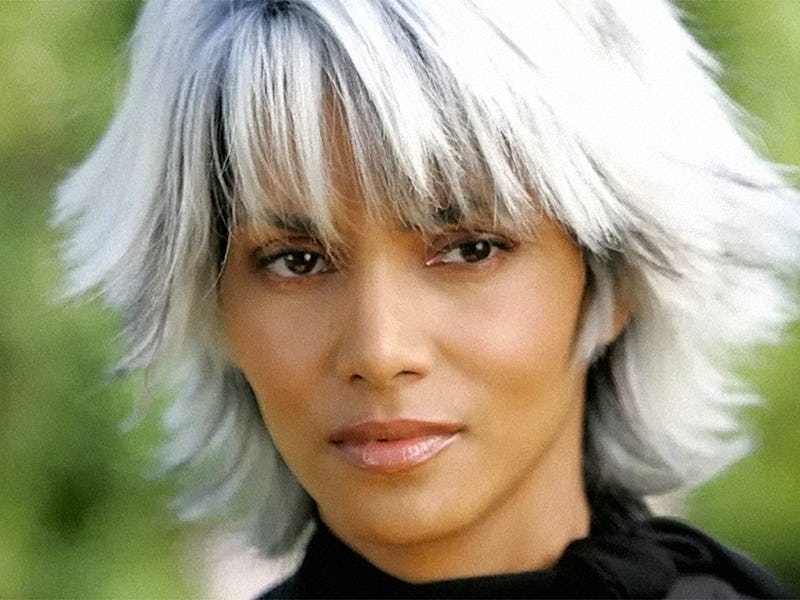17 Years Later, Superhero Movies Still Can’t Overcome Hollywood’s Worst Sin
How much longer do Black women have to wait to be seen as the heroes they are?

Kingsman director Matthew Vaughn has never been coy about his distaste for Hollywood’s shadier practices. Over the years, he’s been pretty candid about his experiences with the X-Men franchise at Fox, and the times he’s had to walk away from the property altogether. But a recent anecdote the Kingsman director told from New York Comic-Con might just be the most shocking yet — not only because it unearths even more behind-the-scenes drama, but because it reaffirms an unspoken truth about Hollywood’s most overlooked stories.
“Hollywood is really political and odd,” Vaughn remarked. It was industry politics that forced him to resign from X-Men: The Last Stand, after discovering the fake script that Fox execs intended to send to Halle Berry. “I asked, ‘What is this draft?’ They were like, ‘Don’t worry about it.’ So I grabbed it, and opened the first page, and it said, ‘Africa. Kids dying from no water, and Storm creates a thunderstorm to save all these children.’”
This false opening was designed to appease Berry, who portrayed Storm in X-Men and X2, but had yet to sign on for the third film. It’s possible that Berry was lobbying for a more substantial part: Storm is something of a goddess, after all, and given how often she’s sidelined in the films, Berry had every right to ask for more. According to Vaughn, however, Fox and Marvel had no intention of playing along.
“‘Once she signs on, we’ll throw it in the bin,’” Vaughn recalls an executive saying. “I said ‘Wow, you’re going to do that to an Oscar-winning actress? I’m out of here.’”
Hollywood Never Knew What to Do With Halle Berry
Despite playing one of the property’s best characters, Halle Berry never truly got her due as Storm.
Berry’s Oscar win in 2002 was meant to open doors for others like her, but it barely moved the needle at all. “I think it’s largely because there was no place for someone like me,” the actor admitted to Variety. That didn’t stop her from fighting for a place all the same. Between her appearances in the X-Men movies, Berry lobbied for action roles whenever possible. She appeared as the Bond girl Jinx in Die Another Day, and nearly secured a spinoff for the character. When that fell through, she took on Catwoman. Of course, we all know how that turned out — but it was borne out of good intentions, and a desire to pave the way for Black women in genre films.
“Because I didn’t do Jinx, I thought, ‘This is a great chance for a woman of color to be a superhero. Why wouldn’t I try this?’” she recalled. Catwoman was not the catalyst anyone hoped it would be: though it does have it fans now, it didn’t do a lot of favors for Berry’s career. After a string of less-than-exciting thrillers, she kickstarted her career renaissance by pitching herself for a role in John Wick: Parabellum. She and Vaughn even got the chance to work together again over a decade later, in Kingsman: The Golden Circle.
Matthew Vaughn’s X-Men Anecdote Is a Painful Reminder of Hollywood’s Worst Sin
With the Kingsman films, Vaughn is setting Halle Berry up to play the hero she’s always wanted to be.
Slowly but surely, the industry is catching up with Berry. Circumstances have even improved for actresses looking to follow in her footsteps. Lashana Lynch stole the show in the latest Bond film, No Time to Die, as well as in The Woman King. The latter felt like a watershed moment decades in the making, and for good reason — but even that film fought an uphill battle when it came to garnering the recognition it deserved.
Marvel is another studio struggling to acknowledge Black female heroes as viable assets. It’s only in 2023, with the release of The Marvels, that a Black woman finds herself center stage, and with a Black female director behind the camera. Others are still years behind. It’s especially frustrating in the face of seemingly-immortal franchises like Mission: Impossible or The Expendables; even Indiana Jones. White male action stars get the chance to work until they physically can’t any longer, while women of color are still fighting to see themselves represented with dignity and autonomy.
The Hollywood that Vaughn walked away from in 2005 still informs the culture in so many ways. Progress is definitely happening, albeit marginally, but the X-Men drama feels indicative of a much larger problem in genre films, one that may still prevail more often than not.